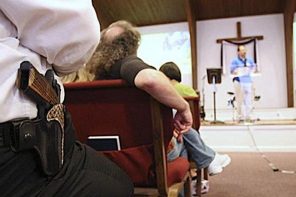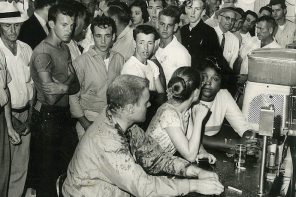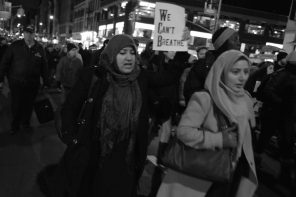Since Tuesday, no group of Americans has been more popular than the surviving leaders of the Civil Rights Movement, sought out by every print, radio, and television journalist in the country for commentary on the election of Barack Obama to the presidency of the United States. The media even rehabilitated Jesse Jackson, whose tear-stained face during Obama’s Grant Park victory speech reminded us that long before he became an icon of bombast, he was an earnest young minister fighting for human dignity on the streets of Chicago.
My own thoughts keep turning back to a conversation that I had this summer with Rev. C.T. Vivian, a leader in the Movement whose involvement stretches back as far as Jackson’s. Rev. Vivian played a key role in the student sit-ins in Nashville in 1960, and then participated in the Freedom Rides. He eventually became a member of the executive staff of Martin Luther King’s SCLC, and he was beaten to the ground by Sheriff Jim Clark on the courthouse steps in Selma in 1965.
Rev. Vivan is now in his mid-80s—a spry, dapper man who wears his enthusiasm on the sleeves of the dark suits that he favors. I went to talk to him for his perspective on a new civil rights center that is being planned here in Atlanta, but our conversation kept returning to Obama’s candidacy. He said something then that by now has almost become a cliché—that he had not expected to see an African American elected to the presidency in his own lifetime. Forty years may have passed since the Voting Rights Act, he mused, but he thought a black president would take a hundred. Of course, at the moment when we were speaking, Obama’s election to the White House was anything but certain. “Between now and November,” he said, “we’ll find out how racist this nation is or is not.”
It was a somber caveat, but Rev. Vivian did not seem concerned by the possibility that the nation would fail this test of its racial progress. In fact, what impressed me most about my conversation with Rev. Vivian was something he did not quite say, something that I heard a number of other former Civil Rights leaders not-quite-say during the campaign season. Beneath his discussion of Obama was the belief that this man had been blessed—perhaps even ordained—with an almost divine opportunity to advance history. “If you talk to a black churchman, he sees this as the continuing work of God,” Rev. Vivian said about Obama’s candidacy, failing to note that the Rev. Vivian, too, is himself a black churchman. No African-American preacher worth his salt is going to tell a white academic with a tape recorder that a presidential campaign may be fulfilling a celestial destiny, but sometimes, he doesn’t need to speak the words to say just that.
To someone who spends most of his time in the hallways of skepticism, second-guessing, and doubt, the moral authority and sincerity that radiated throughout the Rev. Vivian’s discussion of Obama was powerful. I had long been moved by his speeches and the way that his speeches could move others, but the sheer force of Vivian’s conviction was a new thing for me. This was righteous conviction with an aura of the millennial. I can still feel its power.
I knew the McCain campaign was in trouble when it started to mock the undercurrent of faith that I felt in talking to Rev. Vivian. Soon after, the campaign produced the ad that called Obama “The One” and used footage of Heston-cum-Moses parting the Red Sea. Belittling the beliefs that others hold dearly is always bad politics. In this case, though, this kind of taunting felt even more dangerous to me, as though McCain’s followers were thumbing their nose at something better left undisturbed. King famously described the moral universe as a long arc that bends toward justice. He might have added that it has edges sharp enough to cut those who try to bend it back.
On Tuesday, in Grant Park, Obama spoke of the “arc of history,” of bending it once more “toward a better day.” Obama knows his history, and he also knows the Rev. Vivian. The two met in Selma, at a commemoration of the momentous march that originated there. When they spoke, Rev. Vivian told me, Obama wanted to hear about the nuts and bolts of orchestrating one of the most successful struggles for freedom in the twentieth century—“He wanted to know how we did it.” I hope that Rev. Vivian was able to pass on all that he knew.




